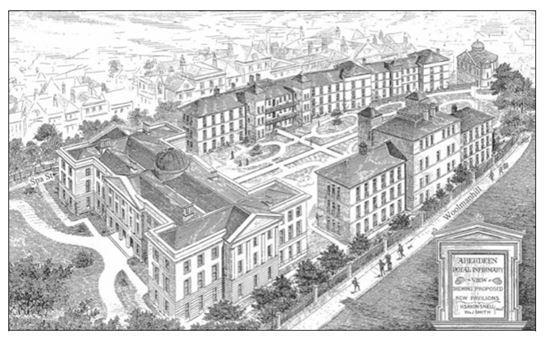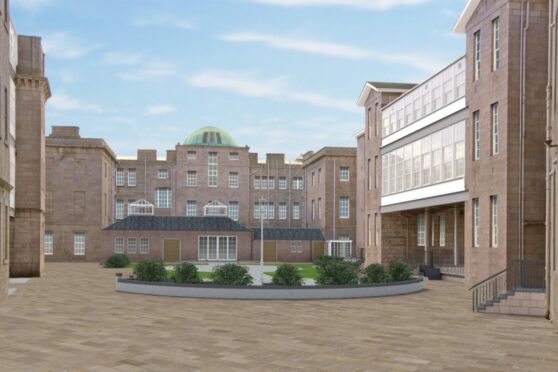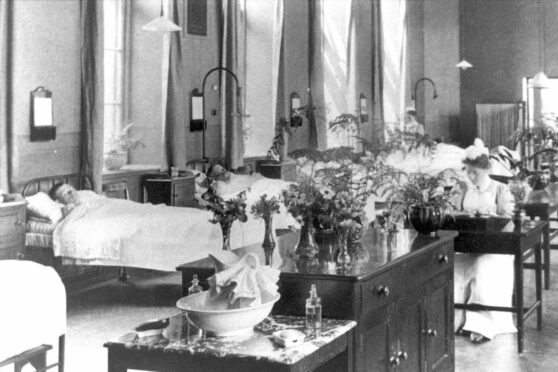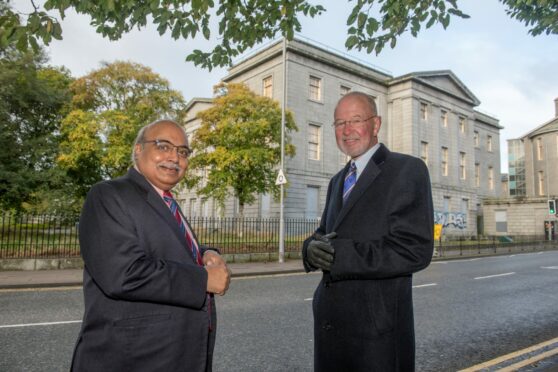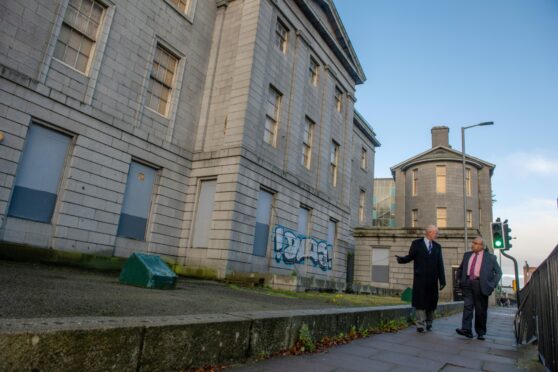As the birthplace of the MRI scanner, iron lung and insulin, Aberdeen has a medical past that would be the envy of most cities.
But while Edinburgh, Dundee and Glasgow have museums to show off their healthcare history, the Granite City does not.
The local veteran doctors of the Aberdeen Medico-Chirurgical Society say the city is “sitting on a goldmine” of vintage material that deserves to be showcased.
And now, the society is pressing for space in the revamped Woolmanhill Hospital site to be set aside for just such an attraction.
It comes at a time when the future of the complex, which dates back to 1741, is less than certain.
Multi-million-pound plans cast into doubt
CAF Properties bought Woolmanhill as the NHS moved out, and announced £10 million proposals to transform the A-listed Simpson Pavilion building into a 52-bedroom luxury resort.
Meanwhile 27 serviced suites, 30 residential apartments and 10 affordable homes were also pencilled in for other vacated buildings.
However, plans for the apartments were withdrawn last year – with owner Charlie Ferrari saying the space would instead be used for an extra 40 hotel rooms.
The society is hopeful that any rejigged plans for the site could include the city’s first medical museum.
‘We have got all this history we should be celebrating’
George Youngson is an Emeritus professor of paediatric surgery at Aberdeen University and was a surgeon at the Royal Aberdeen Children’s Hospital for 35 years.
He worked on a variety of child health projects across Scotland in that time, and was vice-principal of the Royal College of Surgeons (RCS).
George, who was awarded a CBE in 2009 for services to child health, often travelled to Edinburgh in his role with the RCS.
There, he was impressed by the “fantastic medical museum” at the building.
And he has always felt Aberdeen “should be able to do more” to boast about its own past.
George, who is one of more than 300 members of the Aberdeen Medico-Chirurgical Society, is now reaching out to Mr Ferrari in the hopes of discussing his dream for Woolmanhill.
He said: “We understand it is up to the owner what can be done with the site.
“But we are one of the few cities in Scotland that don’t have a medical museum… We have got all this history that we should be celebrating.
“The contributions that many scientists and clinicians here have made over the years have been fundamentally important.
“There is certainly enough history to fill a museum.”
‘Enthusiasm’ for Aberdeen medical museum
George says that, should Woolmanhill’s future be open to review, then it would be the perfect spot for the museum.
He added: “For us, there is great motivation and enthusiasm to do something like this.
“We would be very happy to contribute what we have.
“Our resources are finite but we have some, and more to the point we have a lot of history to help.”
The society used to be based on King Street but moved to the university’s medical school at Forresterhill in the 1960s.
Since the move, mounds of artifacts and portraits have been “gathering dust” in storage.
“Degradation is a real risk to all that history there in the bowels of the medical school,” George continued.
“They never see the light of day.
“Meanwhile, Marischal College’s library is chock-a-block full of artifacts – many are so valuable they have been loaned out to other museums across the world.
“We are sitting on a goldmine of history and not doing anything with it.”
University ‘happy to consider’ proposals on Aberdeen medical museum
A spokeswoman for Aberdeen University said: “The university is keen to see items in its museum collections made accessible for study and enjoyment, including items associated with the history of medicine and science in Aberdeen.
“We would be happy to consider loans for such an exhibition.”
‘Explore all options’ urge
And Aberdeen City Council’s culture spokeswoman, Marie Boulton, says the idea of a medical museum is one she would “love” to see come to fruition.
She said: “Aberdeen could showcase a very interesting and inspiring medical museum.
“Whether or not Woolmanhill is available to host the museum, I would urge Mr Youngson to explore all avenues to make this happen.”
The councillor highlighted local luminaries featured in the recently reopened Provost Skene’s House who made their name through inventing medical equipment, improving practices or discovering cures.
The Aberdeen Medico-Chirurgical Society was founded in 1789 and, among many roles, acts as the “custodian of the heritage of medicine” in the area.

